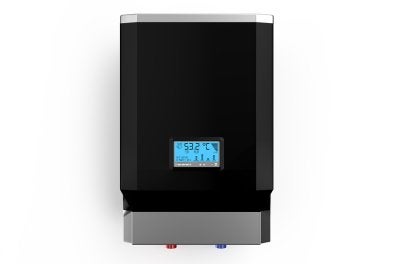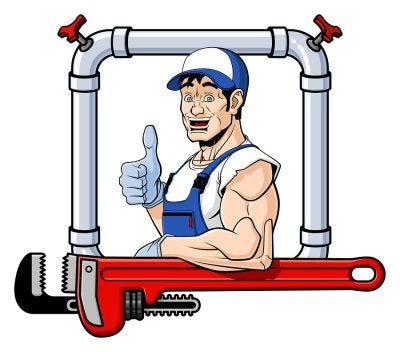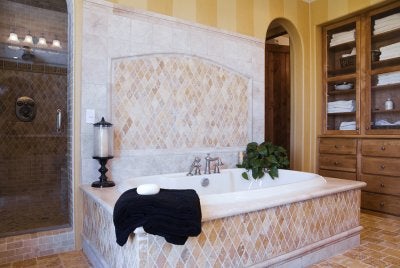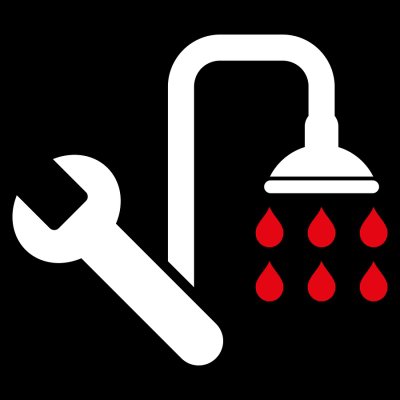-
Myths About Tankless Water Heaters
If you need new water heater installation near Jacksonville, you may be wondering which type to choose. To ensure that you select the best option for your home and needs, consider these common tankless water heater myths before you make a decision.

Myth #1: There is little difference between tankless water heaters.
Over the years, these water heaters have benefited from technological advances that make some of them more reliable, cost-effective, or easy to install. Because some brands have adopted newer equipment while others haven’t, not all tankless water heaters are of the same quality. You’ll find that some brands boast greater reliability and firepower, while others will lack in the areas of product support and upkeep costs.
Myth #2: You can switch to a tankless water heater without an inspection or permit.
While this is true for some areas, it’s not a blanket truth. Your jurisdiction may require both a permit and an inspection before you install your new water heater. To find out more, talk to a local and reputable HVAC company to learn about the requirements for changing to a tankless water heater.
Myth #3: Making the switch to a tankless water heater is simple.
The fact that changing your water heater type is not so easy to accomplish may have something to do with the truth behind myth #2. Unfortunately, most homes were installed with conventional water heaters without any plans to accommodate a tankless system. Your home’s gas line, meter, and piping must be of sufficient size to handle the greater requirements of a tankless water heater. A successful installation is essential for ensuring optimal performance from a tankless water heater.
Myth # 4: It’s expensive to operate a tankless water heater.
Tankless water heaters can potentially save you money on your energy costs. Conventional water heaters must keep a sizeable container of water heated throughout the day and night, even if it isn’t in use. Tankless water heaters warm water only on demand, potentially saving you money on your monthly energy bill.
-
The Benefits of Investing in Environmentally Friendly Plumbing
Many of the components of your property’s plumbing system are available in eco-friendly alternatives. If you are looking for a plumber serving Jacksonville to replace or repair parts of your plumbing, consider the advantages of investing in environmentally friendly options . Green plumbing solutions can benefit the planet, your wallet, and your health.

Less Water
Today, there are plenty of options available to help you reduce your water usage. The newest low flow toilets, for example, can use as little as 1.6 gallons of water per flush, compared to the 3 to 7 gallon range of conventional toilets. Economy shower heads offer another method of saving water by significantly reducing the water allowed to pass through them while in use. Unlike some of the economy shower heads of the past, newer models offer consistent, high-pressure water delivery that can save you on your water costs.
Less Energy
Water heating can account for a significant portion of your overall energy usage, and heat loss is one of the greatest contributors to a higher energy bill. Environmentally friendly plumbing can involve the installation of insulated pipes, as well as the migration of your plumbing from your home’s outer walls into the conditioned interior areas to minimize unnecessary heat loss. High-efficiency water heaters are not only able to reduce your monthly bills, but they can also benefit the planet by conserving energy. Tankless water heaters are another energy-saving option that benefits you by heating water only as it’s needed instead of 24 hours per day. Ask your plumber about what other options are available for your home to reduce its energy usage.
Cleaner Water
Many environmentally friendly plumbing options have the surprising benefit of providing your family with more sanitary water. Because green plumbing systems can be better adapted to filter water, the water carried into your home can be healthier for your than that delivered by your existing plumbing. Green plumbing options that can improve the purity of your water can include reverse osmosis systems, activated carbon filters, whole house water filtration systems, and chlorine filters for shower heads.
-
Surprising Facts About Leaky Faucets
Leaking toilets, pipes, and faucets are common sources of wasted water. If you think that you may need water line repair, call a plumber serving Jacksonville as soon as possible so you can prevent more damage and reduce your water usage. Watch this video to learn surprising facts about leaky faucets that your plumber can explain.
A problem as small as a leaky faucet may not cause you to think twice, but if it drips just once per second, it could end up wasting you 113 gallons of water per month. Luckily, leaky faucets often require only a simple and inexpensive repair. Call your local hardware store or plumber to learn how you can fix your faucet problem or sewer issue.
-
Finding the Right Water Temperature for Your Tankless Heater
If you’re interested in installing a tankless water heater near Jacksonville , you should contact a plumber for professional water heater installation. When installed and operated correctly, a tankless water heater can save you money on your water bills and energy bills. Tankless water heaters provide instant hot water only when you need it, rather than storing hot water in a tank like traditional water heaters.
Your on-demand water heater will only heat water as needed, thus eliminating the risk of heat loss and water evaporation. Tankless water heaters are available as natural gas, propane, solar, and electric water heaters. Many tankless water heaters come with a remote control that allows you to easily change the set point temperature of the water heater.
Because your tankless water heater does not consume electricity or gas when water is not in demand, you can set the water temperature slightly higher than you would with a traditional water heater. The standard temperature for a tankless water heater is 120 degrees. This temperature allows you to add the right amount of cold water to your shower or tub to quickly and efficiently create the ideal bathing temperature.

-
Keeping Calcium Off Your Faucets
Over time, calcium deposits will build up on your faucets, causing plumbing problems and necessitating plumbing repairs near Jacksonville . You can reduce your need for frequent plumbing repairs by preventing calcium buildup from occurring in the first place. For instance, your plumber can install a water softener to reduce the natural minerals present in your water supply.
Watch this video for some great tips for keeping calcium off of your water faucets. A calcium buildup can cause low water pressure, damaged water appliances, and water leaks. If you have a minor calcium buildup, you can soak your faucet aerator in white vinegar for one to three days. For extreme calcium buildups, a plumber may recommend that you use muriatic acid to clean off the calcium deposits. Once you and your plumber remove the calcium deposits, your faucets will produce a much stronger water flow.
-
Finding Solutions for Low Water Pressure Issues
If you are experiencing low water pressure issues in your home, you should contact a plumber near Jacksonville for plumbing repairs. Low water pressure can be the result of a number of plumbing issues, ranging from simple to complex. Here is a look at some solutions and plumbing repairs for low water pressure issues.
Call a plumber for water leak and slab leak repairs.

If the water pipes that service your home are cracked or damaged, you may experience water leaks or slab leaks. Water leaks prevent all of the water from making its way to your faucet or showerhead, which often results in low water pressure. A plumber can perform a thorough leak inspection of the water pipes throughout your home. He can then perform quick, expert water leak or slab leak repair, or water line repair as necessary. Your water bills will decrease, and your home’s water pressure will increase.Check your home’s water valves.
If you or a plumber has turned the water valves in your home off and on at some point, you should check the valves to ensure they are fully opened. If a water valve is only partially open, the water pressure in your home may be affected. A damaged or faulty water valve can also cause progressive problems with water pressure throughout your home. If you aren’t sure if you have a water valve problem, contact a residential plumber for an inspection. A simple plumbing repair can instantly improve your home’s water pressure.
Clean or replace your faucet or showerhead.
Over time, mineral deposits may build up in your faucet aerators or in the holes of your showerhead. This prevents a strong flow of water from exiting the faucet or showerhead, and may result in low water pressure. You can clean your faucet aerators by removing them and soaking them in white vinegar for a few hours. You can also replace your showerhead with a high-pressure showerhead, or clean the mineral deposits off of the showerhead using white vinegar.
-
Eco-Friendly Bathroom Remodeling Tips
Embarking on a bathroom remodel near Jacksonville is the perfect opportunity to investigate eco-friendly bathroom design options . You can conserve water and energy by hiring a plumber who has experience installing energy-efficient bathroom appliances, like tankless water heaters and low-flow faucets. Here are some eco-friendly bathroom remodeling tips that you can discuss with your plumber or bathroom remodeler.

Focus on water conservation.
You can start by focusing on your daily water use, and how you can reduce or conserve water in your bathroom. A plumber can install a low-flow showerhead and low-flow faucets in your bathroom that will use much less water than standard appliances. You can also install a low-flow or dual-flush toilet to further conserve water. In addition, a plumber can install automatic faucets on your bathroom sinks. This will discourage you from letting the water run continuously while you brush your teeth or perform other tasks. You should also contact a plumber for plumbing repairs, slab leak repairs, and water leak repairs as soon as possible to reduce the amount of water wasted.
Utilize green building materials.
You should also commit to using green building materials throughout your bathroom remodel. Your bathroom remodeler can put you in contact with manufacturers of eco-friendly, sustainable building materials for your bathroom remodel. Ceramic tile and natural stone are great choices for walls and flooring, as they are incredibly durable and won’t need to be replaced often, and are also low-maintenance, requiring little cleaning. You can also use recycled and recyclable materials for flooring, countertops, and cabinetry. Finally, you can use LED light bulbs to conserve energy.
Install an energy-efficient water heater.
Most families use hot water in their bathrooms every day. Traditional water heaters store hot water in a tank and heat it continuously, which can result in heat loss and water evaporation. Tankless water heaters provide instant hot water only when needed, rather than storing it. These on-demand water heaters are incredibly energy-efficient, and can reduce your water usage as well as lower your gas or electric bills.
-
Signs You Should Replace Your Plumbing
The plumbing pipes in your home are designed to last for a long time, but they will not last forever. If you fail to replace them once they begin to corrode, decay, and rust, you are asking for trouble. To avoid major plumbing problems, you should look out for signs that indicate that it’s time to replace your plumbing and contact a plumber as soon as you start to see them. You should consider hiring plumbers in Jacksonville to install new plumbing if you notice any of the signs below.

You have plumbing pipes that look like they are corroding.
If you own a home that is more than 50 years old, you should get into the habit of going down into your basement or crawlspace to inspect the condition of the outside of your plumbing pipes. When pipes get old, they will start to get discolored and look like they are falling apart. If they look bad on the outside, they probably look bad on the inside, too. You should have a plumber come and inspect them for you.
You are doing plumbing repairs very frequently.
Are you calling on a plumber every few months to come to your home to fix a leak? It may just be a coincidence, but the need for frequent plumbing repair is another strong indication that you may need to have your plumbing replaced. As plumbing pipes get older, they will begin to leak more and more, and it may be more cost effective for you to install new plumbing than to continue paying for services like water line repair.
You know that your plumbing is old and nearing the end of its lifespan.
By finding out what kind of plumbing pipes you have in your home, you can figure out how long they should last you. Brass, copper, cast iron, and galvanized steel pipes will last between 70 and 100 years, while PVC drain lines will last between 25 and 40 years. Figure out how long your pipes are designed to last and replace them accordingly.
-
How to Switch to a Tankless Water Heater
Have you been thinking about installing a tankless water heater in your home? There’s no better time to do it than right now. A plumber serving Jacksonville can take out your old standard water heater that is equipped with a large storage tank and replace it with a new energy-efficient tankless water heater that will save you money in the long run and deliver hot water to your home on demand. Check out how to make the switch to a tankless water heater below.

Hire a Licensed Plumber to Inspect Your Plumbing System
When you install a tankless water heater in your home, you will need to do more than just swap out your old water heater. You will need to prepare your entire plumbing system for your new water heater. In some cases, a plumber may decide that it would be more beneficial for you to install smaller tankless water heaters in each bathroom in your home as opposed to simply installing one main whole home tankless water heater. It all depends on how your individual home is set up.
Find the Tankless Water Heater That Is Right for Your Home
Once you have had a plumber take a look at your plumbing system, you should speak with him or her about which tankless water heater would be best for your home. Shop around and look at lots of different tankless water heaters until you find the one that works for your specific situation. It’s important to remember that, while most tankless water heaters will cost more than standard water heaters, your investment will pay off in the end in the form of dramatically lower energy bills.
Install Your New Tankless Water Heater With the Help of a Plumber
You should never attempt to install a tankless water heater on your own. If you don’t install it properly, it could pose a threat to both you and your home. Use a licensed plumber to install your new water heater, and you will typically be able to start using it within a matter of just hours.
-
Keeping Your Drains Clear
Preventing Clogged Drains
Clogged drains are one of the most common plumbing problems that homeowners face. There are, however, steps you can take to avoid having to call a plumber to unclog a drain in your home. Watch this video to hear about how you can prevent the need for a costly plumbing repair in Jacksonville.
To keep your drains clear, you should be very mindful about what you place down them. By keeping food particles, hair, grease, oil, and foreign objects out of your drains, you can stop clogs from impacting your plumbing system. You should also run hot water down your drains about once every week to clear soap scum and other residue that might build up inside of them. When you take these precautions, you won’t need to worry about calling a plumber to fix a clogged drain or do a new drain line installation.
RECENT POSTS
categories
- Uncategorized
- Water Heater Installation
- Tankless Water Heater
- Plumbing Services
- Bathroom Remodeling
- Hot Water Heater
- Plumber in Jacksonville
- Water Heater Repair
- Eagerton Plumbing
- Eco-Friendly Plumbing Repair
- Water Damage
- Plumbing Leak
- Sewer Line Repair
- Infographic
- Clogged Drains
- Kitchen and Bathroom Remodel
- Bathroom Plumbing
- Residential Plumbing Services
- Garbage Disposal
- Toilet Repair
- Water Heater Replacement
- Water Conservation
- Emergency Plumbing
- Commercial Plumbing Services
- Kitchen Design Inspiration
- Kitchen Remodel
- low-flow toilets
- Leaky Faucet
- Conserve Water
- Drain Pipes
- Kitchen Sinks
- Vessel Sink
- Plumbing Problems
- Water Leak
- Commercial Remodeling Contractors
- Drain Cleaning Services
